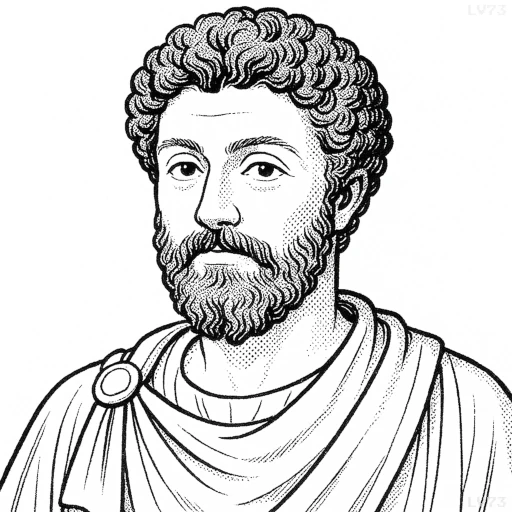“What springs from earth dissolves to earth again, and heaven-born things fly to their native seat.”

- April 26, 121 – March 17, 180
- Roman Empire
- Roman Emperor
table of contents
Quote
“What springs from earth dissolves to earth again, and heaven-born things fly to their native seat.”
Explanation
In this quote, Marcus Aurelius reflects on the cyclical nature of existence and the inevitable return of all things to their source. The first part of the quote speaks to the material world, where all things that come from the earth eventually return to it, symbolizing the impermanence of physical life. The second part alludes to the idea that spiritual or divine aspects—those “heaven-born”—are destined to return to their origin or higher purpose. This view reflects a Stoic understanding of cosmic order: everything has its place in the universe and follows a natural progression of life, death, and renewal.
Aurelius’ worldview was shaped by the Stoic belief in the unity of the universe, where everything is interconnected and operates according to natural laws. For him, life, death, and rebirth were part of a larger, divine order. This belief was not one of fear or resignation, but of acceptance and understanding. The recognition that all things, both physical and spiritual, return to their origin can bring a sense of peace and equanimity in the face of death or change.
In modern terms, this quote encourages a long-term perspective on life, reminding us that all things are in constant flux and transformation. Whether dealing with personal loss, the end of a project, or any form of change, understanding that everything is part of a larger cycle can reduce the fear of endings. By embracing this view, we can cultivate a sense of acceptance and flow in our own lives, appreciating that change is natural and that everything ultimately returns to where it began—whether physically or metaphorically.
Would you like to share your impressions or related stories about this quote in the comments section?



